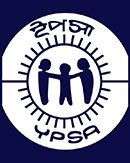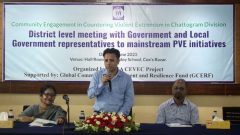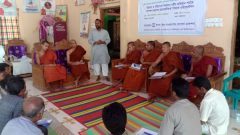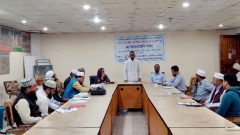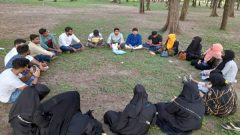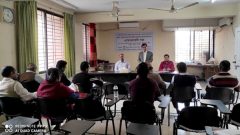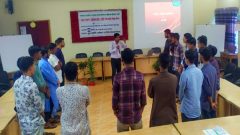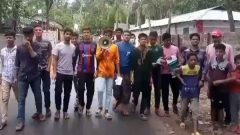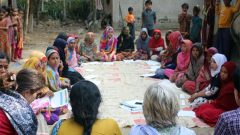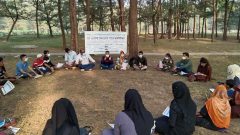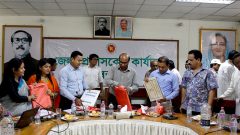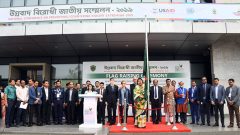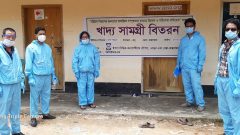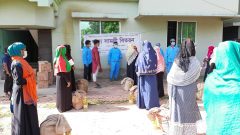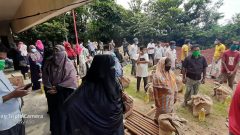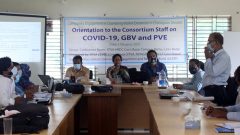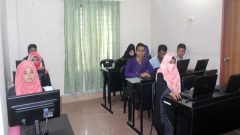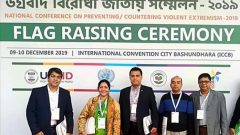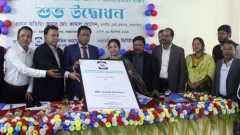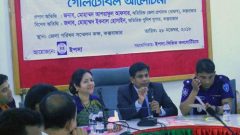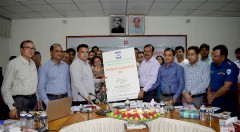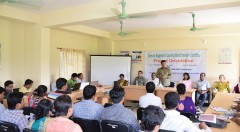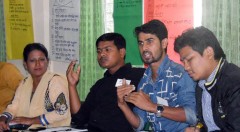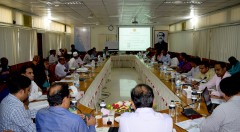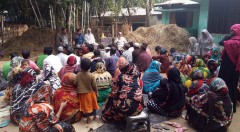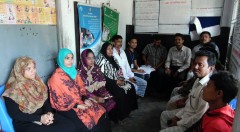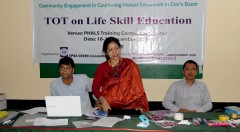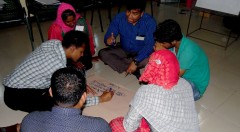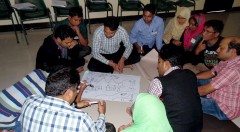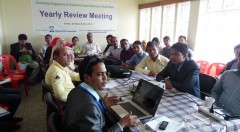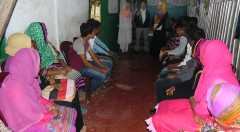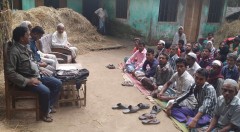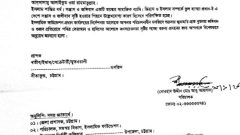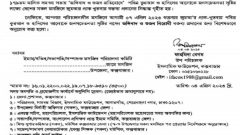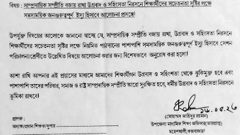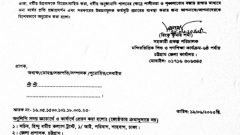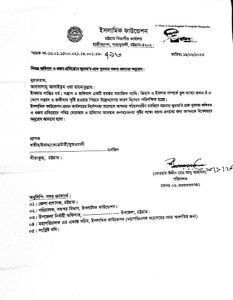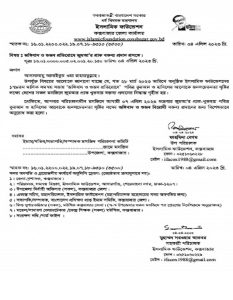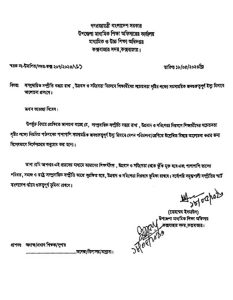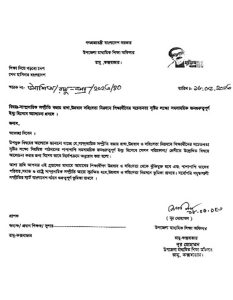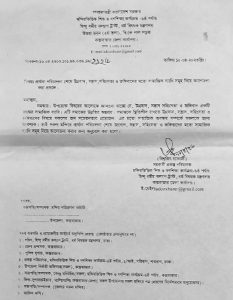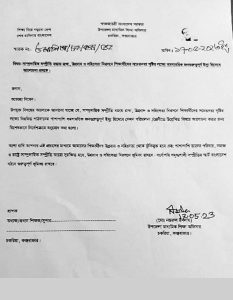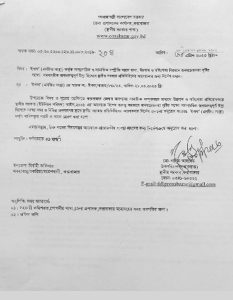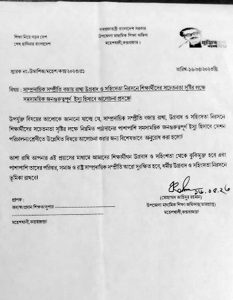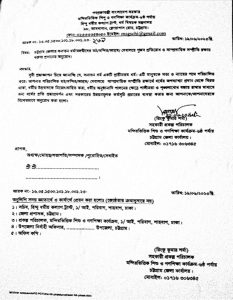Photo Gallery
Name of the Project: Community Engagement in Countering Violent Extremism in Chattogram Division (CEVEC)
Implemented by: YPSA (Young Power in Social Action)
Funded by: Global Community Engagement and Resilience Fund (GCERF)
Working Area: 5 Upazilas in Cox’s Bazar District and Sintakund Upazila in Chattogram District.
Duration of the Project:
Round 2 Extension: July 2022 to December 2023.
Round 2: November 2019 to June 2022.
Round 1: July 2016 to December 2018
Background justification of project:
The YPSA consortium has been implementing Preventing Violent Extremism Project since 2016. In implementing the project activities YPSA become successful to bring a positive impact on the project “Community Engagement in Countering Violent Extremism in Chattogram” with the support of GCERF. This time it is important to retain this impact by establishing sustainable structures at the community level. YPSA Consortium aims to broadly address one GCERF leverage point, the community agency. The consortium will work to provide support for the structural formation of youth Clubs and Forums, already worked with, for the sustainability of PVE interventions. The consortium will provide capacity-building support to youth on organizational management, Club registration process and resource mobilization to run the PVE intervention as part of regular club activities. Club/CBOs members will also be provided refreshers training on LSE on PVE to develop their skills on this particular issue so that they are able to take initiative on PVE.
YPSA-CEVEC will engage District and Sub- District Educational authorities at the local level through advocacy meetings to issue a memo on the importance of PVE initiatives at the educational institution level. Working with the Educational management committee and providing refresher training to teachers will help them to develop a sustainable structure and take initiative on the PVE by providing LSE sessions among the students at the existing educational institutions.
YPSA-CEVEC will engage government and religious institution officials, through advocacy meetings to issue a memo on the importance of PVE initiatives which will direct working on PVE at the religious institutions in a sustainable way. The YPSA will provide orientation to the religious institution management committee and provide refresher training to existing religious leaders for enhancing their confidence and skills to discuss PVE issues on a regular basis during religious speeches.
The YPSA will also work to make a more functional Local Government Authority to deal with the PVE issue sustainably through issue an official memo by engaging UNO (Upazilla Nirbahi Officer), LG (Local Government), Deputy Director Local Government & Divisional Director Local Government. The YPSA will do advocacy with local government bodies as well as provide orientation to them to take initiatives on the PVE issue at the community level.
Expected outcome of the project
- Outcome-1: Youth forums/clubs became self-sufficient community-based structures, and are able to conduct community engagement activities on a regular basis
- Outcome-2: PVE is integrated with educational institutions, and educational authorities and district/sub-district education departments are actively involved in PVE
- Outcome-3: PVE is integrated with the religious institution at the community and district level, and religious leaders play an active role in implementing PVE
- Outcome-4: Local government authorities (local elected bodies; sub-district local government; district level government) are actively preventing VE in a sustainable manner
Categories of Target Population:
- Youth Club members from Cox’s Bazar and Sitakund of Chattogram.
- Drop out and unemployed Youth aged 18 to 35 years from Cox’s Bazar and Sitakund of Chattogram.
- District and Sub-district education department officials from Cox’s Bazar and Sitakund of Chattogram.
- Education Institutions management committee members from Cox’s Bazar and Sitakund of Chattogram.
- Teachers from educational institutes (School, Collage & Madrasa) in Cox’s Bazar and Sitakund.
- Religious institutions officials from Cox’s Bazar and Sitakund of Chattogram.
- Religious institutions management committee members from Cox’s Bazar and Sitakund of Chattogram.
- Religious Leaders from Cox’s Bazar and Sitakund of Chattogram.
- District and Sub-district level local government representatives from Cox’s Bazar and Sitakund of Chattogram.
Overall Project Objective:
- To strengthen communities resilience against the threat of violent extremism in Chattogram division
The expected result of the Project
- Youth forums/clubs become self-sufficient community-based structures, and are able to conduct community engagement activities on a regular basis
- Gain capacity on organizational management, resource mobilization
- Register with relevant government departments
- Clubs takes initiatives on PVE
- PVE is integrated with educational institutions, and educational authorities and district/sub-district education departments are actively involved in PVE
- Issue memos
- Teachers provide PVE sessions to students
- PVE is integrated with the religious institution at the community and district level, and religious leaders play an active role in implementing PVE
- Issue memos
- Religious leaders incorporate PVE in their community services
- Local government authorities (local elected bodies; sub-district local government; district level government) are actively preventing VE in a sustainable manner
- Issue memos
- Joint monitoring/activities among different local gov. bodies
Initiative wise activities of the project
- Organize meeting with potential 28 Youth Club and 45 Youth Forum members to be registered.
- Provide 3 days-long training on organizational management and Club registration process and resource mobilization to the 28 Youth Club and 45 Youth Forum members.
- Provide 2 days-long refreshers training to the 28 Youth Club and 45 Youth Forum members on Life Skill Education to PVE (including digital peace building) in the society.
- Develop 1 guideline and print 100 copies of guideline for registered Clubs & CBOs to take PVE initiatives.
- Organize 7 advocacy meeting with district and sub-district education departmental 10 officials on the importance of PVE initiatives at the educational institution level.
- Organize 7 one-to-one advocacy meeting with 10 district and sub-district level key education-related officials on the importance of PVE initiatives in the educational institution.
- Organize Initial meeting with the 45 educational institutional heads.
- Orientation to the 45 educational institution management committees on the importance of PVE initiatives at the educational institution level.
- Provide 2 days-long refreshers ToT on PVE-focused LSE to 184 teachers of 45 educational institutions where 4 teachers will participate from each educational institution.
- Provide orientation to 100 religious institution management committees on the importance of PVE discussion through religious leaders.
- Organize advocacy meeting with 20 govt. religious institution officials (Islamic Foundation, Hindu religious welfare trust, Buddhist religious welfare trust) on the importance of PVE discussion.
- One-to-one advocacy meeting with 6 religious institutions’ key officials in Cox’s Bazar and Chattogram.
- Provide refreshers training with 100 religious leaders on PVE issues.
- Organize inter-religious dialogue with different religious leaders for peace building.
- Organize district level meeting with relevant government and local government representative to mainstreaming PVE initiatives through local government.
- Organize one to one meeting with Upazila (5 UNO), District (2 DDLG) and relevant officials.
- Organize advocacy meeting with 855 local government bodies from 57 LGA on the importance of PVE initiatives at the community level.
Event news
 Seminar on “Prevention of Violent Extremism in Bangladesh: Graduation and Sustainability”
Seminar on “Prevention of Violent Extremism in Bangladesh: Graduation and Sustainability” A Journey To Preventing Violent Extremism – Video Documentary
A Journey To Preventing Violent Extremism – Video Documentary District level meeting with relevant government and local government representative to mainstream PVE initiatives
District level meeting with relevant government and local government representative to mainstream PVE initiatives Basile Ema Ebédé, Country Manager of GCERF visited YPSA CEVEC activities
Basile Ema Ebédé, Country Manager of GCERF visited YPSA CEVEC activities Inception Meeting of Community Engagement in Countering Violent Extremism held in Cox’sbazar
Inception Meeting of Community Engagement in Countering Violent Extremism held in Cox’sbazar A 5-day ToT on Organizational Management, Leadership Development, and Club Registration Process for YPSA CEVEC Project staffs
A 5-day ToT on Organizational Management, Leadership Development, and Club Registration Process for YPSA CEVEC Project staffs YPSA CEVEC Consortium organized “Yearly Review Meeting”
YPSA CEVEC Consortium organized “Yearly Review Meeting” Virtual Quiz Competition on Importance of Communal Harmony/Prevention GBV/COVID-19 and the role of Youth
Virtual Quiz Competition on Importance of Communal Harmony/Prevention GBV/COVID-19 and the role of Youth High officials of SDC and Embassy of Switzerland, Bangladesh visited YPSA in Cox’s Bazar
High officials of SDC and Embassy of Switzerland, Bangladesh visited YPSA in Cox’s Bazar Deputy Head of Mission, Embassy of Switzerland, Bangladesh visited YPSA CEVEC consortium R2 field activities in Cox’s Bazar
Deputy Head of Mission, Embassy of Switzerland, Bangladesh visited YPSA CEVEC consortium R2 field activities in Cox’s Bazar Refresher Training on Life Skills Education for consortium staffs ended in Cox’s Bazar
Refresher Training on Life Skills Education for consortium staffs ended in Cox’s Bazar First Secretary of Australian High Commission, Bangladesh visited YPSA CEVEC consortium R2 field activities in Cox’s Bazar
First Secretary of Australian High Commission, Bangladesh visited YPSA CEVEC consortium R2 field activities in Cox’s Bazar Camp Majhi Orientation on Social Cohesion held at Rohingya Camp in Ukhiya
Camp Majhi Orientation on Social Cohesion held at Rohingya Camp in Ukhiya Additional Refugee Relief and Repatriation Commissioner receives Flipcharts on prevention of violent extremism
Additional Refugee Relief and Repatriation Commissioner receives Flipcharts on prevention of violent extremism Journalist orientation on preventing violent extremism held in different places
Journalist orientation on preventing violent extremism held in different places
